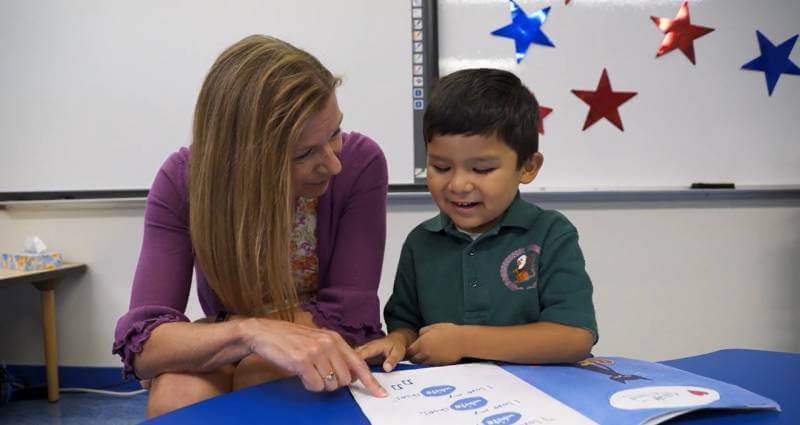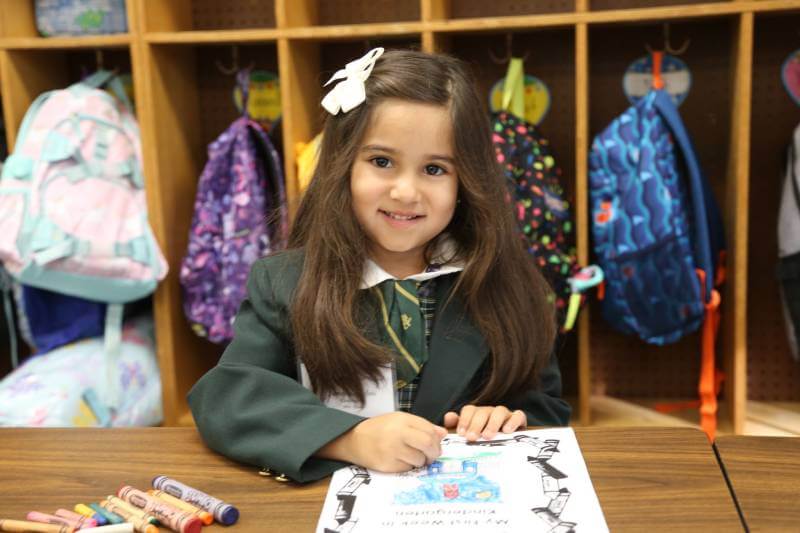Selecting the Virginia School That’s Right for You and Your Family
If 2020 taught us anything, it’s that there’s nothing more important than your child’s education. Virtual learning was a challenge for every school, and as it continued, parents became increasingly aware that where children go to school, the values of that school, and the content and approach to curriculum are all critical to a student’s future success.

If you’re trying to make a decision about where your child should start (or continue) his or her educational journey, consider these eleven questions before committing:
1. Should my child attend public school or private school?
When selecting a school for your child, this debate between public school and private school is one of the biggest decisions you’ll have to make. For many parents, the most significant obstacle to a private education is the cost. Is private school an expense? Yes. Is it a worthwhile investment? Absolutely.
Nothing is more valuable than laying the foundation for your child’s success through a vibrant, challenging, diverse early education experience.
At Westminster, our parents know the value of what our program offers, and they make whatever sacrifices are necessary to ensure their children get to be a part of this community.
2. What school years are the most important for future success?
Many parents assume private school is something to start when the child is older, or they think it’s something to begin in high school in order to highlight the achievement on a college application. Neither could be further from the truth.
When it comes to developing the habits that foster success later in life, the earlier the child starts, the better.
To learn more, we discuss the benefits of starting a private education in preschool in this blog.
3. Are private schools exclusively for the rich?
The simple, short answer is no. Many people have preconceptions about private school based on its portrayal on television or in films. In reality, the student body at a private school might be highly diverse.
If you’re concerned about the tuition aspect, financial aid is available for qualifying families. Learn more about our tuition schedule and financial aid process here.
4. Will the education address values and character, as well as academic development?
When choosing a school, parents can get tunnel vision on the academic side. They want the best, most challenging curriculum, and it becomes the only metric by which they judge a school.
Yes, curriculum is essential, but it’s equally important the chosen school is committed to developing the whole child. This includes emotional and social needs, as well as the cultivation of personal values and character.
Choosing the right school can help reinforce all the lessons the student receives at home, creating a person of high intellect, integrity, and kindness.
5. How qualified are the teachers?

The best curriculum imaginable is only as effective as the teachers delivering that message. When assessing a school, make sure to learn about their current teaching staff, as well as their hiring process and requirements for being a teacher at the school.
If you’re interested in learning more about some of Westminster’s teachers, here are several spotlight features we’ve done on current staff members:
6. Is the curriculum subject to fads in educational theory?
It’s no secret many public schools frequently amend their curriculum to match up with prevailing fads and educational trends. This can be disruptive, confusing, and harmful for the educational trajectory of the students. (Read more about the history of this process in this article from the Los Angeles Times.)
At Westminster, we offer a classical curriculum with time-tested, proven methodologies and content. We are, of course, open to change, but we implement this in a careful, incremental manner, adopting best educational practices without abandoning what we know works.
7. Does class size matter?
One of the big differentiators between private school and public school is the difference in class size. Smaller class sizes allow for more individual attention, which can both boost performance and give teachers the time and space to teach.
At Westminster, classes are capped at eighteen, with most averaging twelve to fourteen students.
(Interested in learning even more? Read about the benefits of a private education beyond small class sizes.)
8. Does the school provide the technological skills for future success?
Technology is a part of our personal and professional lives. While minimizing screen time for young children is beneficial, think about the potential school’s attitude toward technology as a whole. Do they completely dismiss it, or do they meaningfully and thoughtfully incorporate it into an age-appropriate curriculum? Do they give children the chance to learn the fundamentals of penmanship and spelling before allowing students to rely on electronic tools?
Technological literacy is a necessity in our lives today, but make sure the school you choose is mindful of avoiding excessive screen time and teaching children a responsible approach to technology.
9. Does the school prize the arts and provide opportunities for artistic expression?
With budget cuts being the norm today, it seems the arts are always the first to go. Orchestra, band, art, dance, and theater are vanishing from public schools, and children are suffering for it.
The arts are an essential pillar of Westminster, and we believe strongly in their importance to wholesome childhood development. From building confidence to learning how to work in a team to having an outlet for self-expression, we can’t imagine Westminster without the benefits of our artistic endeavors.
(For more information about our commitment to the arts, read this blog on our amended drama production during the pandemic.)
10. Should my child’s school emphasize his or her talents and abilities?

Talents and abilities are wonderful and should be cultivated and nurtured. When choosing a school for your child, though, consider the option that prizes developing a well-rounded student who’s exposed to challenges and opportunities in all arenas.
Students who are given access to math, science, technology, English, sports, music, drama, interpersonal situations and more are allowed to explore and to develop proclivities in many areas.
11. Is it difficult to get into private school?
Again, the perception of private schools and the reality often differ. At Westminster, everything we do is with the aim of creating an inclusive, welcoming, diverse community. Every day, we have students from different cultures and backgrounds walking our halls, and we couldn’t be more proud of that.
Understanding the dynamic of any given school is difficult without being a part of that community. We welcome you to schedule a live virtual tour of our beautiful campus to begin to understand our students, teaching staff, and educational ethos.
For an even more in-depth look at these eleven questions and how they can affect the trajectory of your student’s academic success, download the full report here:

